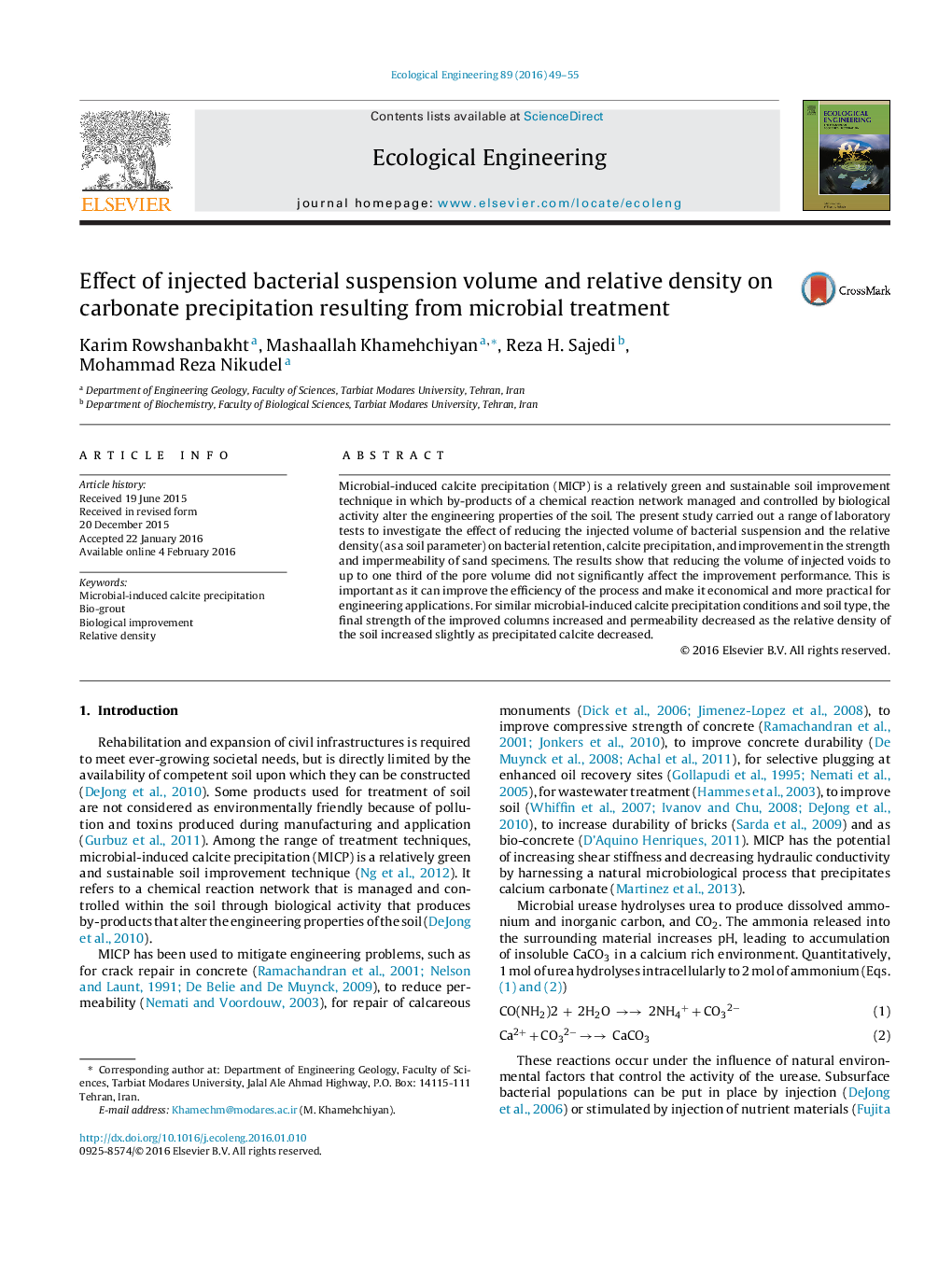| Article ID | Journal | Published Year | Pages | File Type |
|---|---|---|---|---|
| 4388746 | Ecological Engineering | 2016 | 7 Pages |
Microbial-induced calcite precipitation (MICP) is a relatively green and sustainable soil improvement technique in which by-products of a chemical reaction network managed and controlled by biological activity alter the engineering properties of the soil. The present study carried out a range of laboratory tests to investigate the effect of reducing the injected volume of bacterial suspension and the relative density (as a soil parameter) on bacterial retention, calcite precipitation, and improvement in the strength and impermeability of sand specimens. The results show that reducing the volume of injected voids to up to one third of the pore volume did not significantly affect the improvement performance. This is important as it can improve the efficiency of the process and make it economical and more practical for engineering applications. For similar microbial-induced calcite precipitation conditions and soil type, the final strength of the improved columns increased and permeability decreased as the relative density of the soil increased slightly as precipitated calcite decreased.
